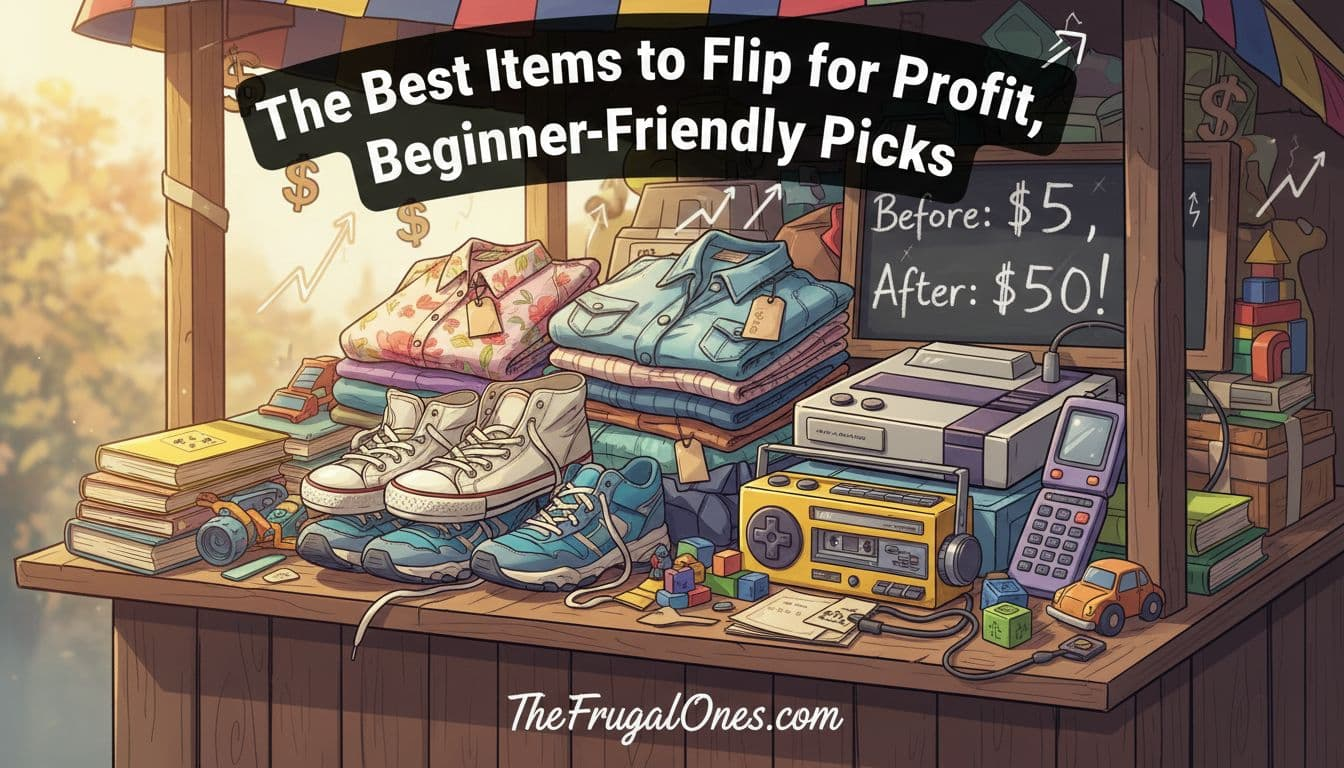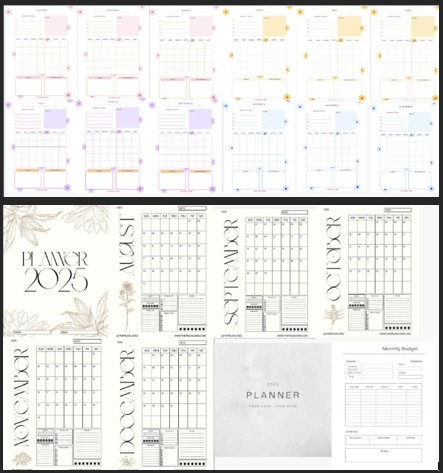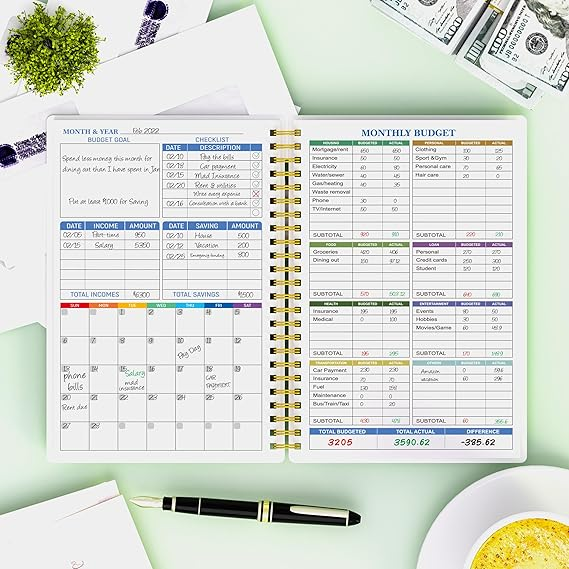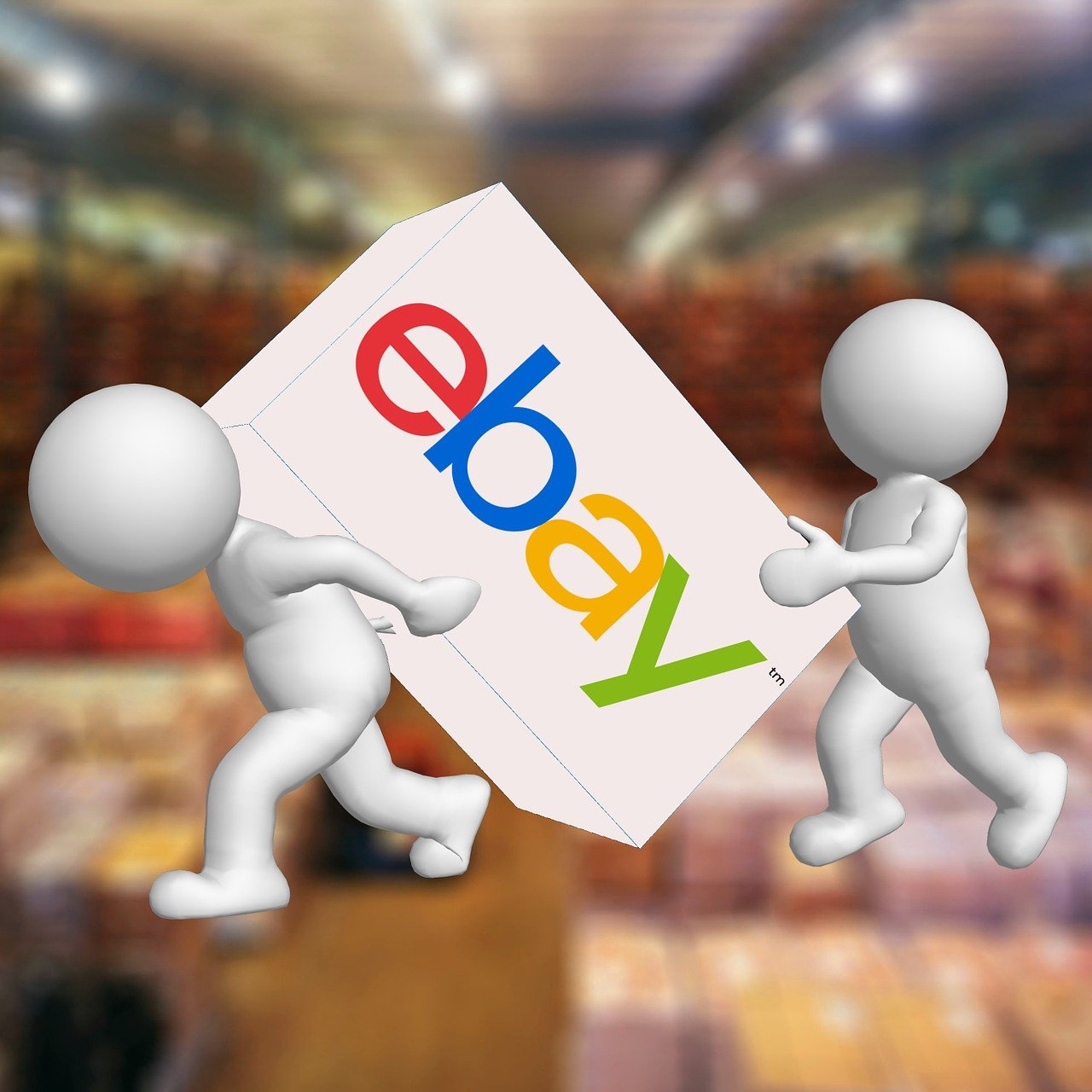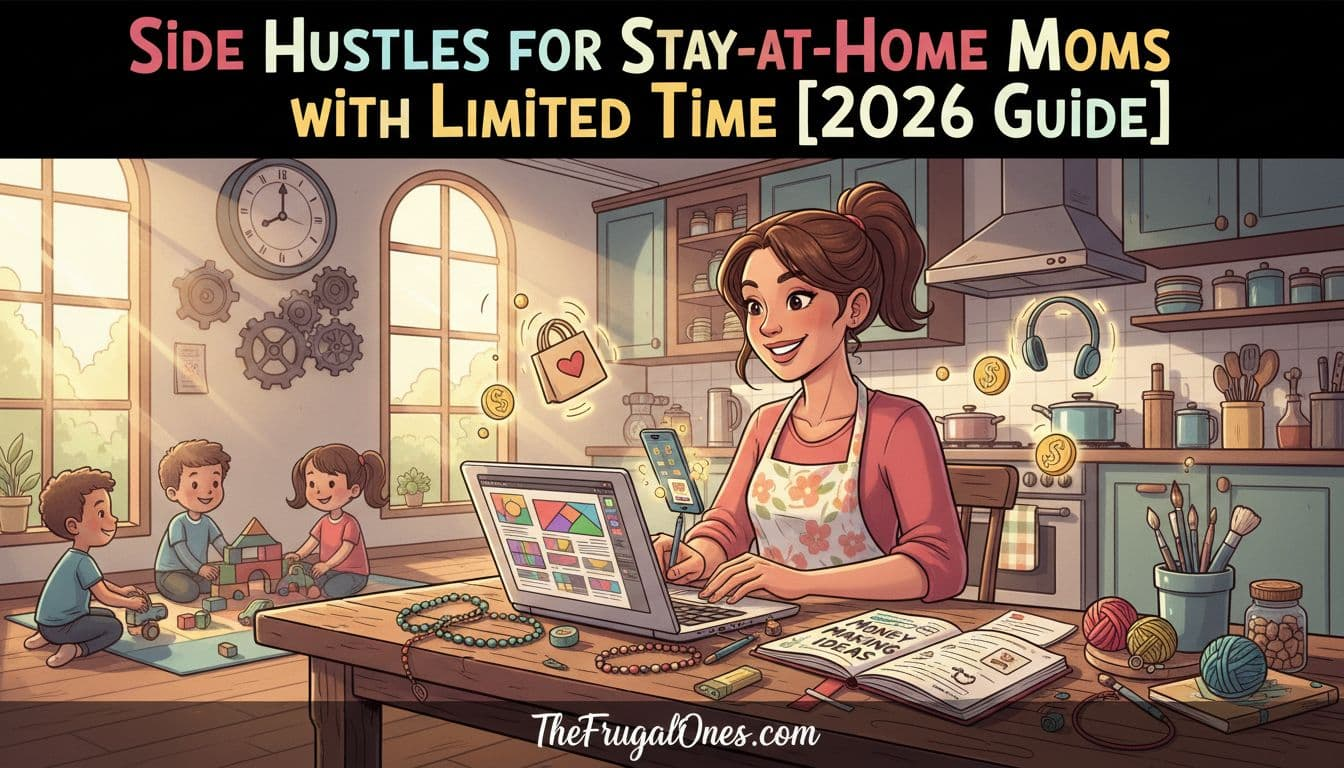The market for selling lyrics online is huge right now, and it’s only getting bigger as more artists and content creators hunt for new material. In 2025, talented songwriters (even those just starting out) can earn solid money by listing their lyrics on the right platforms. New and established websites are offering better payment terms and easier ways to reach buyers worldwide.
If you’re serious about turning your words into income, there’s never been a better time to explore this side hustle. The best platforms on this list do more than just connect you with buyers—they help protect your rights and ensure you actually get paid for your work. Whether you’re focused on hip-hop, pop hooks, country storytelling or anything in between, these sites will help you find the right home—and the right price—for your lyrics.

Why Sell Your Lyrics Online in 2025?
If you’ve ever scribbled song lines in a notebook or tapped out rhymes on your phone, you might already know the thrill of seeing your words come to life. In 2025, writers have more ways than ever to turn those lines into real money. Whether you write lyrics as a hobby or see yourself crafting hits, the climate for selling lyrics online is wide open and full of new possibilities.
The Growing Demand for Original Lyrics
Streaming services transformed how people find and enjoy music. Artists, producers, and even brands now need a steady stream of fresh words to stand out in a noisy space. This hunger for unique lyrics stretches far beyond hit radio singles:
- Indie musicians often cannot afford to hire full-time songwriters but still want high-quality material.
- YouTubers, content creators, and podcasters want original verses for intros, jingles, or background tracks.
- Commercial brands build catchy, branded tunes to boost social media campaigns.
Many buyers know what they want, but lack the skills to write memorable lyrics. That’s where you come in.
New Opportunities in the Digital Era
A decade ago, breaking into songwriting meant industry contacts and a pile of luck. Now, almost anyone can upload their lyrics, connect with buyers, and get paid—no fancy connections needed. Some reasons why the scene is friendlier than ever before:
- Global reach: Lyric selling platforms let you reach musicians worldwide, day or night.
- Easy submissions: Uploading your lyrics, adding samples, and negotiating terms can be done from your laptop or even your phone.
- Automated payments: No more chasing down late checks or waiting for mail. Most sites use fast, reliable payment processors like PayPal or Stripe.
What’s exciting is how technology keeps lowering the barriers. Even beginners can join in, learn as they go, and start building a name (and a side income).
The Shifting Music Industry
The industry is changing, and it’s changing fast. Artists today release music at a rapid pace, and the rise of independent distribution means anyone can share their songs worldwide. New models and tools have made selling lyrics simpler and safer:
- Self-publishing tools put lyricists in charge of their own catalogs and contracts.
- Royalty tracking is more transparent, so writers know how much they’ve earned.
- Community and feedback on many lyric-selling sites help writers improve their skills by connecting with other musicians and buyers.
Writers are no longer locked out of the process. You control how your lyrics are priced, where they’re published, and even what genres you focus on. If you want more freedom and more ways to get paid for your creativity, the trend is clear—selling your lyrics online in 2025 is not just possible, it’s practical and popular.
This year, the way people write, buy, and monetize lyrics keeps shifting toward the writer’s favor. The chance to turn your words into extra income, new collaborations, and even a full-time job has never been stronger.

What to Know Before Selling Your Lyrics Online
Thinking about selling your lyrics online? There’s a lot more to it than just uploading your words and waiting for the cash to roll in. Setting yourself up for success means understanding the basics, protecting your work, and knowing what to expect before you hit publish. Let’s break down what you need to know so you don’t run into surprises later.
Copyright Fundamentals
Before anything else, protect your words like you would your favorite hoodie—don’t let anyone snatch them without credit or payment. In most countries, the moment you write lyrics in a fixed form (like typed out on your laptop, not just humming in the shower), you automatically own the copyright. That said, registering your copyright with an official agency (such as the US Copyright Office) offers an extra layer of protection. If you ever need to take legal action, registration helps prove the work is yours.
Key copyright tips:
- Save drafts and dated copies as proof.
- Consider watermarking or adding a digital signature to your files.
- Read each website’s copyright policy before uploading.
Protecting yourself up front is less stressful than chasing someone down after the fact. Peace of mind is worth a few extra minutes of paperwork.
How Payments Work
Let’s talk about the stuff that actually ends up in your bank account. Not every site pays the same way or on the same schedule. Some offer instant payments per lyric, while others use royalties or commission models. Here are the common ways you’ll receive payments from lyric-selling platforms:
- Direct Payments: Get paid a set fee via PayPal, Stripe, or bank transfer when someone buys your lyrics.
- Royalties: Earn a percentage every time your lyrics are used, streamed, or reproduced.
- Licensing Fees: Some buyers will pay you for the right to use your lyrics for a specific time or project only.
Each option has pros and cons. Direct payments are fast and simple but may pay less per lyric. Royalties can add up over time, especially if your lyrics land with an artist who gets a lot of plays. Always double-check payment policies before you list your work.
Global Market Considerations
Selling lyrics online means your buyers could come from anywhere—New York, London, Tokyo, Cape Town. While that’s exciting, it also brings a few challenges. Currency exchange rates, tax rules, and language barriers can trip up new sellers.
What to keep in mind:
- Some sites convert your payment into your currency automatically, while others don’t.
- Check for any fees that might eat into your earnings (especially on international transfers).
- Be ready for different tastes and trends—what sells well in one country may flop in another.
If taxes sound scary, don’t stress—many sites provide basic documentation at tax time, and you can start simple with small sales. Just keep good records along the way.
Understanding Exclusive vs. Non-Exclusive Rights
This part trips up a lot of songwriters, and for good reason—it’s not always obvious what you’re signing up for. In plain English:
- Exclusive rights: You sell your lyrics to one buyer, and you can’t sell or use them anywhere else.
- Non-exclusive rights: You keep ownership and can sell the same lyrics to multiple buyers.
Why does this matter? Exclusive sales usually pay more, but you give up future income from those lyrics. Non-exclusive can mean steady, smaller payments as many people use your work. Every site has its own rules, so always read the fine print.
Quick check before you click “sell”:
- Do you want your lyrics to be a one-time sale or available for more buyers?
- Does the platform let you choose?
- Is the price fair for the rights you’re giving up?
Understanding your rights means fewer regrets and more control over your future income.
Equipped with this know-how, you’re already ahead of most people dipping their toe in. Keep your eyes open, trust your gut, and treat your lyrics with the respect they deserve.

25 Best Platforms to Sell Your Lyrics Online (That Pay Well in 2025)
If you’ve been sitting on a stash of lyrics and are ready to turn them into extra cash, here’s the section you’ve been waiting for. These sites make it easier than ever to get your words in front of buyers who value original songwriting. Some platforms work best for quick listings, while others offer a sense of professional community or promise larger payouts over time. Whatever your goals, you’ll find a platform here that fits your style, budget, and need for fair payment. Let’s dive right into the list of top platforms for lyricists in 2025.
1. SELLFY: Sellfy is the easiest way you can sell song lyrics online.
Sellfy lets you build an online shop and start selling your lyrics even if you’ve never run a store in your life. You don’t need special design skills or technical know-how. The setup walks you through every step.
How to start selling song lyrics with Sellfy:
- Open a free account.
- Upload your lyric files (TXT, PDF, DOCX—or whatever makes sense).
- Enter payment details (PayPal, Stripe, or direct deposit).
- Drive traffic to your store using built-in promo tools.
Sellfy stands out for its quick setup and attractive, ready-made store themes. They don’t take a cut of your sales, so you keep more of what you earn. Sellers have already cashed out over $100 million on this platform. Try their 14-day free trial and see for yourself how simple it is to build a side hustle selling lyrics.
2. Songbay
Songbay claims to have the world’s largest original lyric library and for good reason. They welcome lyricists working in any genre and allow you to set your own prices for your work. You can even sell lyrics without needing to provide an audio file or recording.
Monthly fees range from about $4 to $14 (in US dollars). You keep all earnings and royalties from each sale. Songbay stands out by offering free copyright registration, which can usually cost $15–$35 elsewhere. That alone might earn your loyalty if you want legal peace of mind. If you need to read up on how they handle copyright, Songbay has clear, simple guides on their site.
3. Premium Lyrics
Premium Lyrics is like a marketplace where artists and composers hunt for fresh lyric material. They’re always accepting new lyricists, but you’ll need to apply and provide three lyric samples for review. If you’re a match for their audience, you’ll hear back within three weeks.
Application is simple but selective, so don’t wait to explore other options at the same time. The site is designed to reward quality and give writers a shot at bigger audience exposure.
4. SoundBetter
SoundBetter helps musicians, singers, and producers connect with lyricists and other creatives. Since Spotify backs this platform, you can expect reliability and a steady flow of real projects. As a lyricist, you browse the job board and respond to requests that fit your skills.
Building your reputation here is key. Good reviews boost your chances to get hired for higher-paying gigs. You’re paid directly for each completed project—no drawn-out waits.
5. AirGigs
AirGigs is built for people who produce, write, or record music. You list your lyrics writing services as a “gig,” set custom terms, and wait for interested buyers to reach out.
Transactions are secure and payments are held within the platform until the job is finished. AirGigs takes an 8%–15% cut, but many lyricists find the steady flow of clients and payment protection worth it.
6. Upwork
Upwork is a massive freelance marketplace where artists, producers, and amateur musicians are always looking for fresh lyrics. Make a sharp profile and apply directly to jobs that match your writing style.
While you may find more projects in content writing and audio, there’s no shortage of lyric jobs—especially if you specialize in a unique genre. To land jobs, tailor every pitch and show exactly how you can help the client achieve their vision.
7. Fiverr
Fiverr is as simple as it gets for selling creative services. You make a listing, price your lyric packages (some start as low as $5, but you control the pricing), and let buyers find you.
Freelancers offer all types of lyric writing here: pop, rap, EDM, even specialty styles. If you’re just starting out, Fiverr helps build your portfolio and bring in quick wins. Reviews and ratings drive more business your way, so deliver your best work on each order.
8. Twine
Twine is another freelance platform but has a strong community of songwriters and lyricists. Over 6,000 lyricists list their services, and average day rates can reach $50 to $500.
Twine operates on a portfolio model. Upload samples, highlight your style, and pitch for lyric writing jobs or partner up with other creatives. Networking here can lead to bigger collaborations and consistent gigs.
9. Ditto Music
Ditto Music gives independent lyricists a way to distribute their music and lyrics to all the big streaming platforms. You keep 100% of your royalties and always retain music rights.
The 30-day free trial is a bonus. After that, plans cost between $19–$69 per year. This is a top choice if you want real control over where your lyrics and music land.
10. Songtradr
Songtradr is a global licensing and distribution platform. It connects your lyrics with music supervisors, brands, and artists searching for new material for TV, films, or ads.
You can start with a free plan, but to get 100% of your royalties, choose a paid plan ($19–$49 per year). Songtradr also helps with copyright issues and gives you tools for tracking how your lyrics are used.
11. TuneCore
TuneCore combines digital distribution with royalty collection and licensing. You upload lyrics (and music, if you have it) and distribute to global platforms.
There’s a free starter plan for access to social distribution. To push your work to big digital stores, plans begin at $14.99 per year. If you want one place to manage, sell, and promote lyrics, put TuneCore on your short list.
12. Music Xray
Music Xray matches lyricists with industry professionals seeking new material. Free to sign up and upload, you can pitch your lyrics directly to producers, record labels, and publishers.
Get feedback, refine your work, and pitch again—this platform pushes constant improvement and helps you network with serious buyers.
13. ReverbNation
ReverbNation gives you tools beyond simple sales: social media promotion, fan engagement, and email marketing are baked in. The free plan lets you post lyrics and reach a wide audience.
For more direct access to record labels and industry pros, paid plans start at $12.95 a month. If you want to grow your fan base while selling your lyrics, ReverbNation covers both bases.
14. LyricFind
LyricFind is a heavyweight in the world of licensed lyrics. The site distributes your lyrics to streaming services, music websites, and digital platforms—so you get royalties every time your words show up.
They work with both new and established lyricists, helping you earn from legal uses worldwide.
15. Lyrics.com
Lyrics.com is one of the most-visited lyrics sites and lets writers post their own work for buyers to discover. You set your price, but there’s a $75 submission and review fee upfront.
With that in mind, you’ll want to post only your best and most marketable work. The audience is massive, so your lyrics could get picked up by artists from any corner of the music world.
16. SoundBetter
SoundBetter’s job board (owned by Spotify) lets you answer postings from musicians, songwriters, and producers who need lyrics. You can negotiate your own rate and build relationships across the industry.
Posting your services here also gives you the chance to meet big-name producers. If you’re committed to a lyric-writing career, it’s a powerful place for networking and higher-profile jobs.
17. Songwriting Pro
Songwriting Pro is a tight-knit community where you can network, join writing groups, and get valuable feedback. It’s also where you’ll find regular opportunities to pitch your lyrics directly to publishers and record labels.
There’s a 14-day free trial, then $20 a month for full membership. Joining Songwriting Pro feels like taking your hobby seriously—plus, you’ll learn tons from experienced writers.
18. Demo My Song
Demo My Song helps turn your lyrics into fully-produced tracks. They offer studio-quality music production and recording for lyricists. Packages start at $250, but if you want distribution and licensing, the starting price jumps to $500.
While the service isn’t cheap, it’s one of the best ways to see your work transformed into a finished song ready for shopping to artists or publishers.
19. ASCAP
ASCAP is a major performing rights organization (PRO) that protects your rights as an original lyricist. Registration (currently fee-waived for new members) means you get royalties every time your lyrics are performed or broadcast.
Members receive 50% of royalties, with the other half going to publishers. If you take your ownership seriously, make ASCAP the first step in your lyric-selling career.
20. Taxi
Taxi isn’t just for lyricists, but it’s among the largest communities connecting songwriters to music supervisors, record labels, publishers, licensing agents, ad agencies, and game companies.
You’ll get direct access to these buyers by submitting your lyrics for review. Taxi also offers helpful feedback to sharpen your pitch and boost the odds your words make it to TV or film.
21. SongCast Music
SongCast Music distributes independent music and lyrics to all the big digital stores (iTunes, Amazon, Spotify). You keep every penny of your royalties.
Subscription plans start at only $5.99 a month. This option is perfect for writers who want wide exposure and simple earnings.
22. Nashville Songwriters Association International
The NSAI is more than just a pitch platform—it’s a home for people working to get better at songwriting. Members have access to weekly workshops, feedback, mentoring, and pitching sessions with professionals.
Membership costs $225 for the first year and $200 to renew. If you want to connect, learn, and improve your chances to sell lyrics, NSAI is hard to beat.
23. Verse-Chorus
Verse-Chorus is a creative community for lyricists and songwriters. Create a detailed profile, upload your best work, and start browsing listings from producers or artists looking for lyrics.
The platform shines as a networking spot and a place to find real, paying gigs from buyers who care about quality.
24. Rocket Songs
Rocket Songs is a popular market for independent songwriters and artists. According to Rocket Songs, over 90% of lyrics and songs submitted get licensed.
Sign up as a content partner, then send in 3 MP3s for review. If accepted, you keep 100% copyright ownership and earn income through licenses, streaming, publishing royalties, and song sales. They usually review submissions within five days.
25. Matchyfy
Matchyfy offers something different—it helps musicians and lyricists get their songs on Spotify playlists with compatible audiences. While it isn’t a lyric marketplace, getting your songs placed on the right playlists can drive more streams (and potential fans) to your work.
Setup is quick and straightforward. Most users highlight the support team’s helpfulness and the short turnaround for playlist placements (often 15 minutes or less). If your lyrics are already set to music, Matchyfy can help maximize your song’s listenership.
Each of these platforms brings unique features and payment models to the table. Your ideal pick depends on how you want to work, how much oversight you like, and what kind of clients or exposure you hope to find. Test out a few, read each site’s terms closely, and you’ll be on your way to turning creative sparks into actual income.

Mistakes to Avoid When Selling Lyrics Online
Selling lyrics online sounds simple enough, but the process is filled with ways even smart writers can trip up. If you want real money and lasting control over your work, a bit of caution goes a long way. Here’s where many lyricists lose out—and what you can do to avoid costly slip-ups.
Common Copyright Pitfalls
It only takes one mistake with copyright to lose control over your lyrics. Some writers skip this step, thinking it’s just extra work, but it protects your ideas (and your earnings).
- Posting lyrics online before registering copyright: The internet moves fast. Once your words are public, anyone can copy, republish, or claim them as their own. If you haven’t registered your work or saved proof, it’s much harder to prove ownership if there’s ever a dispute.
- Trusting platform policies without reading them: Every site has different rules. Some claim partial rights over your lyrics just by listing them. If you don’t read the fine print, you may unknowingly give up future royalties or the right to sell elsewhere.
- Ignoring the importance of clear contracts: In the excitement of a sale, it’s easy to agree to vague terms. That can backfire if the buyer uses your lyrics in ways you didn’t expect. Get clear, written terms that specify what they can do with your work.
Don’t treat copyright as an afterthought. A few steps now (keep versions, read terms, save contracts) can save headaches later.
Pricing and Undervaluing Your Work
New writers are often unsure how to price lyrics, leading to undervaluing their effort and creativity. Selling too cheaply doesn’t just hurt your wallet—it sets the wrong expectation for future buyers, too.
- Rushing to sell at rock-bottom prices: It’s tempting to price low for a quick sale, especially on sites with lots of competition. But if your lyrics connect with a paying artist or brand, they’re worth more than a few bucks.
- Copying other people’s pricing without checking your own value: What works for a pop hook may not make sense for a full ballad or a complex rap verse. Take time to consider length, theme, and market demand when you price your work.
- Forgetting to factor in site fees and taxes: Some platforms take a cut of your sale or charge transaction fees. If you don’t plan ahead, you may end up with a lot less than you expect.
Consider starting with a “minimum price” rule for your lyrics, and be ready to walk away from offers that don’t meet your standard. Believe in what your time and ideas are worth.
Working with Unreliable Platforms or Buyers
Not every lyric-selling platform or buyer is above board. Some will vanish with your money, others may use your lyrics without paying. Staying alert protects both your work and your reputation.
- Skipping research on new platforms: Scammers often set up slick-looking sites, lure in writers with big promises, then disappear with your lyrics or data. Always confirm a platform’s reputation, look for payment proofs, and read user reviews before uploading anything.
- Ignoring red flags from buyers: Genuine buyers will communicate clearly, stick to agreed terms, and pay as promised. If you spot delayed payments, requests for free “samples,” or hard-to-understand contracts, proceed with caution.
- Failing to secure payment before delivering the final file: Some buyers request final drafts or extra edits without settling up. Use trusted platforms that hold funds in escrow, or insist on partial payment up front if you’re working directly.
Think of your lyrics as your business. Work only with platforms and buyers who respect your rights and deal fairly. If something feels off, trust your gut and look elsewhere.
With a little extra care, you can turn your lyric-writing talent into steady income—without common setbacks dragging you down.

Why Sell Lyrics Online?
If you’ve ever stared at a full page of choruses, verses, or hooks and wondered if your words could do more than gather digital dust, you’re not alone. Selling lyrics online has become one of the simplest ways for writers—whether hobbyists or pros—to earn real money with their words. You don’t need to be a performer, play an instrument, or even know any music theory. Just focus on what you’re good at: writing lyrics that connect.
The appeal goes far beyond just earning a few extra bucks. Selling lyrics online opens doors to connections you can’t always find in your local scene, whispers your voice into new genres, and sometimes lands your work with artists who’d never otherwise cross your path. If you can write catchy phrases, original stories, or emotional lines, the market is waiting.
You Don’t Need to Write the Music
A lot of people shy away from songwriting because they think you have to do it all—lyrics, melody, chord progressions, the whole song and dance. But writing lyrics is its own job, and it’s just as important. You do not have to compose music or arrange full tracks to play a key part in someone’s song.
- Lyricists vs. Songwriters: Lyricists focus only on the words. Songwriters often write both the words and the melody. On many lyric-selling platforms, there’s space for both, but a strong set of lyrics on its own is always in demand.
- Ease of entry: If you’re someone who knows what makes a chorus stick or can tell a story in three verses, you already have what you need to get started. Nobody will ask about your music production skills.
This opens the door for writers who want to contribute to songs without needing a full recording studio.
The Market Exists—and It’s Growing
Independent musicians, small studios, YouTubers, indie label producers, and even advertising teams all need fresh lyrics. They don’t always have time or the skill to write every song or jingle themselves, so they turn to online platforms.
- Many buyers want only lyrics: Some have the music done but need words to finish a track.
- Indie artists: Budgets might not allow for a full-time collaborator, so they buy lyrics per project.
- Brands and content creators: They seek original lines for commercials, podcast intros, and even video games.
Your lyrics could end up in places you never imagined—from an acoustic duo in Europe to a TikTok hit in Asia.
Start Small, Grow Big
The best thing? You can start selling lyrics online with almost no upfront cost. Most marketplaces accept simple uploads of TXT or DOC files, with no fancy formatting required. Many writers use their early sales as a side hustle. Others build steady income streams or even kickstart a career in the music business.
- Low risk: No need to quit your day job.
- Flexible work: Write lyrics at your own pace, upload when you’re ready.
- Room to improve: Feedback and sales history let you refine your writing for what works.
Unlike pitching songs to record labels, online lyric sales don’t need industry connections. You decide how much you work and how far you want to take it.
No Performance Nerves, Just Creative Rewards
You don’t have to stand on stage or sing into a mic. Instead, you can focus on the part you love—expressing ideas, playing with language, and building stories that move people. If you’re an introvert, busy parent, or someone who simply prefers working behind the curtain, this is your space.
- Sell anonymously or use a pen name if you want privacy.
- Reach listeners worldwide with zero travel.
- See your work come alive through others with video links, credits, or shoutouts from artists who use your lyrics.
Many lyricists say the satisfaction of hearing a melody wrapped around their words (even if it’s not their own voice) is a reward in itself.
Why Not Give It a Try?
Selling lyrics is like selling anything else online—if there’s demand and you have the goods, it makes sense to let buyers find you. All you need is your voice, your perspective, and words that connect. Whether you view it as a side hustle, creative outlet, or potential career, there’s a place for you in the world of online lyric sales.
How To Sell Lyrics Online
So you’ve picked out your favorite platforms, polished your lyrics, and you’re ready to earn money for your words. But what steps would actually get your lyrics sold online—not just uploaded and forgotten? Let’s break down exactly how to take your work from computer screen to cash, with ideas that suit beginners as well as writers with some experience.
Prepare Your Lyrics Like a Pro
Before you start posting your words everywhere, there’s some prep work you should do that will instantly help your chances.
- Organize your lyrics: Keep your work sorted in folders by genre, mood, or theme so you can respond to requests quickly.
- Clean up your formatting: Make your lyrics easy to read. Use clear titles, separate verses and choruses, and check for spelling mistakes.
- Add a short description: A few sentences about the story, style, or inspiration behind the lyrics helps buyers connect with your work faster.
- Keep backup drafts: Save older drafts, dated notes, and any proof of your writing process. It protects you in case there’s ever a copyright disagreement.
Think of this as “dressing up” your lyrics for buyers. Clear organization and professionalism stand out in a crowded market.
List Your Lyrics on the Right Sites
Once your lyrics are ready, list them on platforms that fit your style (pop, rap, country, etc.) and payment needs. The guide above covers 25 of the best options for 2025, each with its own sign-up steps—but the basic approach looks similar.
- Create a strong profile: Fill in details about your experience, influences, and what kind of projects you like. A profile photo and a short bio can build trust fast.
- Upload your lyrics: Follow each site’s upload guidelines. Attach a PDF or text file, and use keywords that describe your work so it pops up in searches.
- Set your price and terms: Decide if you’re open to exclusive deals, non-exclusive licensing, or both. Some sites let you choose, while others have standard terms. Don’t be afraid to start higher and lower your price later if you need to.
Take the time to read through site rules about payment, copyright, and refunds before you hit publish.
Make Your Listings Stand Out
Online buyers scan hundreds of lyrics and profiles daily. A well-presented listing draws their attention, so give buyers a reason to click.
- Highlight your best work first: Feature your strongest lyrics at the top of your listings.
- Write a catchy preview: Add a hook line or emotional lyric as a sample.
- Share any credits: If your lyrics have been recorded or performed—even by smaller artists—mention it.
- Use tags and categories wisely: Accurate tags (like “breakup song” or “upbeat rap”) help buyers searching for a certain vibe find your work.
If you’re selling in a crowded market like pop, a clean profile and sharp tagging make a big difference.
Promote Your Lyrics Outside the Platforms
Most lyric-selling platforms attract buyers, but a little self-promotion helps boost your sales and connect you with the right audience.
- Share on social media: Create a dedicated Instagram page or Twitter/X account where you post lyric snippets, share your process, or celebrate new sales.
- Join songwriter groups: Active groups on Facebook, Discord, and Reddit are always looking for lyric trades, collabs, and feedback. Networking here can open doors.
- Email indie musicians or producers: A short, friendly email with a lyric sample (and a link to your store) can go further than you’d think.
Promoting yourself isn’t bragging; it’s helping the right people find your work.
Keep Track of Your Sales and Rights
Stay organized as you sell more lyrics online. This means knowing where your work is, what rights you’ve given up, and who’s paid for what.
- Keep a spreadsheet: Note every sale, price, date, buyer, and rights you’ve transferred (exclusive or non-exclusive).
- Save copies of contracts or receipts: Even digital agreements count.
- Watch out for double-selling: Never sell the same lyrics exclusively to more than one buyer.
If you ever want to build a portfolio, pitch to publishers, or just see your growth, good records make it simple.
Stay Engaged and Keep Improving
Landing your first sale feels amazing, but don’t stop there. Keep interacting with other writers, buyers, and music fans.
- Respond quickly to messages and questions.
- Ask for feedback (if buyers are willing).
- Update your listings with new lyrics or improved versions of older work.
- Learn from what sells best. Look for patterns in the type of lyrics, genres, or moods.
Selling lyrics online is part creativity, part business. As you gain experience, you’ll find the routines and platforms that suit your style best. And remember, the more you participate, experiment, and connect, the better your chances of growing this from a side hustle into a real income stream.

FAQs on Sell Lyrics Online
Selling lyrics online stirs up plenty of practical questions. Even if you’re confident about your work, you’ll want to know exactly how things work before sharing your words with buyers. Here’s a breakdown of common questions people ask when thinking about making money from their lyrics online, along with the honest answers you need to move forward with less guesswork and more confidence.
Do I Need to Copyright My Lyrics Before Selling Them?
You automatically own copyright over your lyrics as soon as you write them down. However, if you want full legal proof in case someone copies your work or if a dispute comes up, it’s smart to formally register your lyrics with your country’s copyright office. This can act as your official claim to the work and make legal disagreements much easier to settle. Some platforms, like Songbay, even offer free copyright registration as part of their service, which offers another layer of peace of mind.
Quick tips:
- Save files and timestamped drafts.
- Register high-value lyrics if you plan to sell them on multiple sites.
Can I Sell Lyrics Without Writing Music?
Absolutely. Many lyricists only write words and do not compose music. Countless artists, producers, and companies look for original lyrics to fit music and beats they already have, or to inspire new melodies. Many sites clearly state whether they accept lyrics-only submissions, making it simple for pure lyricists to get started.
Good to know:
- Label your work “lyrics only” in your listings.
- Some sites help pair lyricists with composers for further collaboration.
How Much Can I Earn by Selling Lyrics Online?
Earnings can stretch from a few dollars for smaller projects up to hundreds, or sometimes even thousands, for exclusive custom work or licensing. The price depends on:
- The quality and originality of your lyrics
- The platform or site’s policies
- Whether you sell exclusive or non-exclusive rights
- Your reputation and sales history
Royalties and licensing deals bring extra income if your lyrics are used in songs played often (think TV, streaming, or radio).
On average:
- Beginners may earn $20–$100 per lyric set.
- Experienced lyricists can demand $200 or more per project or negotiate ongoing royalties.
Can I Sell the Same Lyrics on Different Sites?
You can sell the same lyrics to multiple buyers if you offer “non-exclusive” rights. This means you keep ownership and sell the right to use your lyrics over and over. If you sign an exclusive deal, you give up the right to sell those particular lyrics elsewhere. Double-check the site’s terms and be crystal clear about what rights each buyer is paying for.
Tip: Keep a log of where and how each lyric has been sold to prevent accidental double-selling.
How Are Payments Handled? Is it Safe?
Most platforms use well-known payment methods like PayPal, Stripe, or direct bank transfer. Many established sites hold payments in escrow until a project is delivered, which protects both buyers and sellers. Always check review ratings of any platform you’re thinking about joining. If a site handles payments outside of trusted services or asks for odd payment requests, that’s a red flag.
Payment facts:
- Fees may apply for processing or withdrawals—read each platform’s FAQ.
- Never send final drafts before payment is guaranteed.
Is There a Demand for My Genre or Style?
There’s a place for almost every genre online, from mainstream pop and rap to bluegrass or niche indie. If you write in a less common style, it might take more effort to find the right buyer, but specialty markets exist for almost every sound or subject. Some sites even encourage unique writing styles, story-based lyrics, or forms outside typical verse-chorus structures.
What sells best:
- Catchy pop hooks
- Heartfelt ballads
- Authentic storytelling in country, hip-hop, and folk
- Niche themes for commercials or branded content
Can I Stay Anonymous While Selling Lyrics?
Yes, most platforms let you use a pen name or business alias. For writers who value privacy, this is a great way to stay out of the spotlight while still earning and building a reputation. Just remember, if you use a pen name, keep your payment details up to date behind the scenes.
What Happens if Someone Steals My Lyrics?
While outright theft is rare on reputable platforms, it does happen. If you suspect someone is using your lyrics without paying or credit, take these steps:
- Contact the platform and present evidence (like draft dates or registration).
- If needed, send a DMCA takedown request to sites hosting the lyrics.
- Registered copyright owners have stronger legal standing to ask for infringement to stop and even claim damages.
Staying organized and keeping records of your work helps if you ever need to prove ownership.
Are There Upfront Costs to List My Lyrics for Sale?
Many sites are free to join, but some charge for premium features or take a slice of your sales. A few require monthly fees, submission fees, or upgrade fees for top listings. Free plans usually offer fewer features, so weigh the costs against what you expect to earn.
Budget reminders:
- Start with free or trial tiers.
- Only pay for upgrades after you’ve landed a few sales.

What If My Lyrics Don’t Sell Right Away?
It’s normal to have some lyrics sit unsold for a while. Algorithms, trends, and the size of the buying market all play a part. Use the slow period to:
- Polish your writing
- Improve listings (better descriptions, new tags)
- Try out different genres or themes
- Connect with buyers for feedback
Persistence and patience pay off, and learning from early stumbles is part of the journey.
Can I Sell Lyrics That Have Already Been Published on My Blog or Social Media?
Yes. If you maintain ownership and have not sold exclusive rights, you can resell lyrics even if they’ve appeared elsewhere online. Keep in mind, some buyers prefer previously unpublished work, so note where and when your lyrics have been published in your listing for full transparency.
Best practice: Clearly state if your lyrics have been made public before to build trust with new buyers.
Curiosity is your best asset when weighing your options for selling lyrics online. Don’t be shy about asking even more questions on each platform or in songwriter communities. Writers who seek answers, adapt, and stay alert to new opportunities tend to do best in the marketplace.
Sell Lyrics Online – How Much Money Can You Earn?
Figuring out what your lyrics are worth and how much money you can bring in online might feel like a guessing game at first. The truth is, lyric writing income varies a lot—some writers pocket a steady side income, while a lucky few hit the jackpot with a single hit. Let’s break down the earning potential for different types of lyric deals and how real lyricists are cashing in today.
What Sites Really Pay for Lyrics (With Actual Numbers)
Different platforms pay in their own ways. Some offer a quick one-off download sale, while others line your pocket with royalties month after month. The numbers here come from real site policies and what lyricists have actually reported.
Here’s a snapshot of what you can expect:
- Personal Use Sales: On sites like Songbay, some lyricists earn as little as $0.99 per personal-use download. This is a “mass market” approach: lower price, but anyone can buy.
- Exclusive Copyright Sales: If you sell the full rights to someone (meaning you can’t ever sell those lyrics again), you might get anywhere from $60 to $6,000. Most sales fall between $300 and $1,000 for a polished set of lyrics, but rare gems or high-demand genres can fetch much more.
- Royalties and Licensing: If you license your lyrics to multiple buyers, you get a payment (sometimes up to $500+) every time someone uses your words, plus possible streaming or radio royalties.
- Freelance Jobs and Custom Gigs: On platforms like Fiverr, AirGigs, or SoundBetter, standard lyric-writing jobs pay between $20 and $200. More established writers can demand $400 or more for a unique commission.
- Staff Writing or Record Label Deals: If you sign as an in-house lyricist for a publisher or label, you could make a full salary—anywhere in the range of $25,000 to $55,000 per year. This depends a lot on your experience, skill, and workload.
Here’s an example table to help you compare:
| Platform/Deal Type | Typical Pay Range | How You Earn |
|---|---|---|
| Personal Download (Songbay) | $0.99 – $20 | Per lyric, non-exclusive |
| Full Copyright Sale | $60 – $6,000 | One-time, exclusive |
| Royalties/Licensing | $20 – $500+ per project | Ongoing, non-exclusive |
| Custom Lyric Gigs (Fiverr) | $20 – $400 per gig | Per job, custom |
| Staff Writing (Publisher) | $25,000 – $55,000/year | Salary, royalties split |
If you’re curious about your own numbers, try listing a few different packages at different prices and track which ones get the best response.
Royalties: The Gift That Keeps Paying
The sweetest deals happen when your lyrics end up in a song that’s performed, streamed, or used in media. Every time someone hears that song, mechanical royalties land in your account—tiny at first, but they add up over time.
How do mechanical royalties work?
- Every time the song sells, gets streamed (Spotify, Apple Music, etc.), or appears on the radio, you get a cut.
- If your lyrics land in a successful commercial, movie, or TV show, you’ll receive sync or performance royalties too.
Most independent lyricists who go the royalty route make between $100 and $1,000 a year unless their work takes off. But if you hit the jackpot with a viral hit, those numbers can explode. Year after year, you get paid—sometimes long after you’ve forgotten about the song.
Factors That Affect Your Earnings
What you earn depends on a few key things:
- Your experience and reputation. Seasoned writers always charge more. Good reviews and portfolio samples can double your rate.
- Type of lyric sale. Exclusive rights go for more cash up front, but non-exclusive lets you keep earning from the same lyrics.
- Genre and demand. Pop, rap, and commercial jingle lyrics usually command higher fees than niche genres.
- Quantity and consistency. More listings, regular uploads, and strong engagement with buyers mean more potential sales over time.
If you decide to sell lyrics to a record label or sign as a staff writer, you’re entering a world where steady paychecks and royalty checks are possible. But most lyricists start by selling lyrics as a freelance side hustle and move up from there.
How Some Songwriters Get Rich
Some writers, of course, go well beyond small sales. Songwriters who sell hits to major artists, get picked up by labels, or move into licensing for ads and TV can earn life-changing sums.
Here’s how big earners make their money:
- They sell rights to music artists and record labels looking for catchy, fresh lyrics.
- They earn mechanical royalties with every play, stream, or sale of the finished song.
- Their songs get used in commercials, TV, or movies—bringing in licensing fees.
- Some even record and release their own material, banking both lyricist and performer royalties (think Michael Jackson, Mariah Carey, Jay-Z).
In this business, every new buyer, sync deal, or song placement is a new chance for your words to earn you passive income, sometimes for decades.
Final Thoughts on What’s Possible
Selling lyrics online isn’t a get-rich-quick scheme, but it’s probably one of the most flexible ways to earn with your creativity. You might make coffee money, a steady side income, or—who knows—see your work catch fire with the next big hit.
- Most lyricists start with small sales and work up.
- The best earners balance one-off fees, ongoing royalties, and active relationships with buyers and publishers.
- If you’re open to different kinds of deals, your income can grow much faster.
The numbers are real, and if you’re willing to treat lyric writing as both art and business, real money is waiting for you online.

Other Ways To Make Money From Music
Selling lyrics is a smart way to turn words into profit, but let’s be real—there’s more than one way to get paid doing what you love in music. Some people make cash reviewing songs, while others find ways to earn from curating playlists, collaborating, or licensing music. Here’s a look at extra paths to making money in music, whether you write, listen, organize, or share.
Get Paid to Curate and Share Playlists
If you spend hours making Spotify playlists and tracking down new tracks, your hobby could pay off. Playlist curators are in demand, especially if you have a good ear and know how to build a following.
- Playlist Push: This site pays you to listen to and review new songs. Once your playlist meets certain criteria (like genre and follower count), you can start reviewing tracks from independent artists who are looking for notice. Each review pays a few dollars, but it adds up over time. Plus, you help artists find a bigger audience.
- Other options: Sites like SoundCampaign, SubmitHub, and Groover also offer money and perks for curators. You can review music, suggest tracks, or help indie acts get their songs heard.
For people who already enjoy curating and sharing playlists, this feels less like work and more like getting rewarded for something you’d do anyway. Tip: Spend time building your playlist’s brand and audience to qualify for more paid opportunities.
Earn Cash by Reviewing Music
Listening to new music and sharing your thoughts pays actual money on some platforms. These sites are popular with record labels and artists who want honest feedback before releasing a track.
Check out these options:
- HitPredictor: Share your quick takes on unreleased songs and get paid in gift cards or rewards.
- Current: Listen to music via their app and earn points you can swap for cash or prizes.
- Musicxray: Artists pay to have their music reviewed by real listeners. You sign up, fill out your taste profile, then get paid for reviews—easy cash if you like having an opinion.
This is perfect for people who like to listen first and speak up—no musical training required, just honest feedback and a few minutes per track.
Pitch and License Finished Songs
If you write both lyrics and music, or work with collaborators, you can earn even more by pitching finished songs. Songwriters who put their work in front of music publishers and licensing agencies open up a bigger stream of income.
Ways to get started include:
- Songwriting Pro: Publishers browse here for ready-to-record songs. You pitch directly, sometimes joining contests or feedback sessions first.
- Songtradr: Upload your song (with or without lyrics), set your terms, and wait for commercial or film agents to license your track.
- Direct pitches: Reach out to new or unsigned artists through social media or their management. Having a polished demo increases your chances.
Keep in mind, the more finished your work is (demo or studio version), the more likely it will catch the right ears.
Sell and Stream Your Music Online
You don’t need a label to get songs out to a global audience any more. Today, you can upload your tracks to dozens of digital stores and streaming services, collect royalties, and interact directly with your audience.
Popular places to sell or stream your music:
- Your own website: Use a site builder or shop tool like Sellfy to sell music files and merch directly. This way, you control pricing, branding, and customer info.
- Streaming giants: Spotify and Apple Music pay royalties for every play. While one stream might earn cents, frequent plays from many users add up fast.
- Bandcamp and CD Baby: These platforms let independent musicians sell downloads and physical copies, set their own pricing, and keep more of their earnings.
Each service comes with different fees or commissions, but you can try several and see what works best for your style.
Offer Music-Related Services
Some musicians make money by lending their skills to others. This might mean writing a custom song for a small business, helping a YouTuber with background music, or recording vocals for someone else’s track.
Top ideas for service-based income:
- Fiverr or Upwork: Set up a gig for lyric writing, vocals, mixing, or even music advice.
- AirGigs: Find freelance work that lines up with your skills, from full songwriting to quick edits.
- Custom services: Offer to record a song for special occasions (weddings, birthdays) and promote your offer on social media.
Personal service gigs can build your reputation fast and bring in repeat clients. Plus, you often set your own rates.
Collaborate and Split Profits
Working with other musicians or singers not only sharpens your skills but also opens the door to shared royalties and project fees. If you’re a lyricist, find producers or composers who need words. Together, you can co-write songs and split the profits on every sale or stream.
Here’s how you can collaborate:
- Look for music or songwriting groups on Facebook, Reddit, or Discord.
- Browse job boards on platforms like SoundBetter or Twine.
- Network through songwriter associations and industry meetups (either in-person or virtual).
Collaboration is more than just networking—it’s about building creative teams that help everyone earn more and reach a wider audience.
License Music for Commercial Use
Music licensing lets you earn money anytime your song is used in a video, ad, podcast, or even a video game. Some sites let you list your finished tracks for licensing, with you keeping a piece of the revenue every time someone uses your music.
- Songtradr, AudioJungle, and Pond5: These sites list your music for licensing. You make money each time someone buys a license to use it in their project.
- YouTube Content ID: If your music gets used in videos, Content ID can track uses and send royalties your way.
Licensing isn’t just for big pop acts. Small artists, indie bands, and solo songwriters land sync deals that bring in money long after the song’s finished.
Teach, Write, or Share Your Expertise
If you understand music, songwriting, or the business side of things, you can get paid by teaching others. Offer courses, write how-to guides, or consult with up-and-coming artists.
Ways to earn:
- Teach lessons online, either live or as downloadable classes.
- Self-publish eBooks or guides about lyric writing, music marketing, or production tips.
- Start a YouTube channel focused on songwriting advice.
People love learning from those who’ve already walked the path. Sharing what you know can build another steady stream of income.
Whether you’re reviewing songs on the bus ride home, pitching lyrics to a band, or building your own digital storefront, there’s a money-making path in music that matches your strengths. Even if selling lyrics is your main game, don’t overlook these other ways to keep your music business moving forward.
Other Ways to Make Money from Music
Selling lyrics is a great start, but if you love music, your options for turning passion into income don’t stop there. Some people get paid to review new songs and curate playlists. Others sell finished songs, license tracks, or provide music services like vocals or custom jingles. If you’re like me and always on the hunt for smart side hustles, knowing these extra paths can keep your music income steady (or even boost it in a big way).
Get Paid for Curating and Reviewing Music
People who spend hours fine-tuning playlists or discovering new artists can actually make money just by sharing and reviewing music. Here’s how:
- Playlist Push: If you’ve built a strong playlist on Spotify, you can earn money for each song review. Playlist Push pays curators to listen and give feedback to new tracks from independent musicians. Your playlist needs enough followers and the right niche, but once you qualify, it’s a relaxing way to earn extra cash. Honestly, it almost feels like getting paid for doing what you love anyway.
- SoundCampaign, SubmitHub, Groover: These sites also pay curators and playlist owners to review tracks, recommend music, and help new songs get heard. You can earn a few dollars per review, sometimes more if your playlists are popular.
- Musicxray, HitPredictor, Current: Here you get paid to listen, review, or rate new tracks. Rewards can come as cash, points, or gift cards. If you listen to music during commutes or study sessions, these fit right into your daily routine.
Building a playlist that gets you paid takes a bit of early effort. Focus on growing your followers and keeping your playlists fresh to access more paid opportunities.
Sell Finished Songs, Not Just Lyrics
If you write full songs (lyrics and melody), there’s more money on the table. Pitch your finished tracks or demos to publishers, music agencies, or directly to artists.
- Songtradr and Songwriting Pro: Both let you upload completed music for review and licensing. Producers, brands, and independent artists hunt here for their next release or sync deal.
- Direct pitches: If you spot an up-and-coming artist whose style fits your song, send them the demo. Most independent acts are open to good music—even from writers they’ve never met.
Finished songs open doors for licensing fees, streaming royalties, and bigger upfront sales compared to lyric-only deals.
License Your Music and Collect Royalties
Licensing means letting other people use your music in projects—anything from YouTube vlogs and podcasts to ads and video games. Every use can put dollars in your pocket.
- Songtradr, AudioJungle, Pond5: Upload your tracks and set your licensing terms. Buyers pay to use your music legally, and you can license the same song many times.
- YouTube Content ID: Register your music through a distributor or service to get paid when your tracks pop up in others’ videos.
Sync licensing can add up, especially if your song finds its way into a viral video or a popular series.

Sell Your Music on Streaming and Download Platforms
You don’t need a record deal to get your music out there. Today, anyone can sell or stream original songs and collect royalties directly.
- Spotify, Apple Music: Distribute songs through DIY services like TuneCore or CD Baby. Every stream earns you a small royalty. If you can build a dedicated fan base and get repeat plays, royalties can be surprisingly steady.
- Bandcamp, Sellfy, your own website: Sell downloads and even physical merch. Bandcamp pays quickly and lets you set your own price.
- SoundCloud: This platform helps you connect with fans and land sync deals if you sign up for their monetization tools.
Digital distribution puts your music in the same stores as the big names—no middleman needed.
Offer Freelance Music Services
If you have strong skills—maybe you sing, compose, play an instrument, or produce—you can freelance directly to people who need help with their own projects.
- Fiverr, Upwork, AirGigs: List services like songwriting, vocal recording, mixing, or even quick lyric edits. You set your price and timeline.
- Social media or local ads: Sometimes small businesses or content creators want custom jingles or background music. Offering “music for hire” services can land you everything from birthday songs to brand anthems.
Direct gigs let you build client relationships and earn on your own terms. Over time, repeat work can turn freelancing into reliable, monthly income.
Team Up and Split Profits
Sometimes the best earnings come from working together. If you’re strong with lyrics but not melody, team up with a musician or producer. Co-writing lets you split any income from sales, licensing, or royalties.
- Networking spots: Search Facebook groups, Reddit threads, or songwriting forums for collaborators. Sites like Twine or SoundBetter are also built to connect creative partners.
- Songwriter events or workshops: The Nashville Songwriters Association and similar orgs (even online) are full of people looking for partnerships.
Splitting ownership is often better than going it alone, especially when you both bring something unique to the song.
Teach, Guide, or Write About Music
You don’t need to be a chart-topper to teach. If you have knowledge about writing, producing, or the business side of music, share what you know and get paid for it.
- Teach lessons: Offer songwriting or instrument coaching online through platforms like Lessonface or even Zoom.
- Write courses or eBooks: Self-publish guides or run live workshops about how to improve as a songwriter.
- YouTube or a blog: Package tips, reviews, or “how-to” lessons. As your audience grows, you can monetize with ads or sponsorships.
Helping new songwriters or musicians is rewarding and often brings more fans to your own work.
A Quick Recap
Trying these extra music income streams lets you use skills you already have (and maybe some you didn’t know about). You can:
- Get paid to review songs and manage playlists.
- Sell finished songs and collect royalties.
- License music for media projects.
- Offer music services online.
- Collaborate for profit-sharing.
- Teach or write about your expertise.
There’s no single “best” way—experiment and see which mix works for your lifestyle and goals. If you care about music and want to earn more from it, these options help you create opportunities every day.
How To Sell Lyrics To Rappers
Breaking into the rap lyric market feels different than selling to other genres. Rappers care about authenticity, punchlines, rhythm, and voice. If you’re serious about getting your words in their songs, you’ll want a focused, practical approach—one that helps you stand out in a crowd and actually close deals. Here’s how you can turn your writing into cash and credibility in the world of hip-hop.
Build Your Lyricist Skills with a Rap Focus
Selling lyrics to rappers calls for a specific set of skills. Precision and personality matter as much as rhyme. Take time to:
- Study classic and current rap lyrics. Break down songs from legends and today’s chart-toppers. Notice how each artist tells stories, uses wordplay, and connects idea to idea with clarity.
- Practice writing in different rap sub-genres. Boom bap, trap, drill, conscious, and party rap each need their own style and tone.
- Work on flow and cadence. Even when pitching “lyrics only,” rappers want to see how the words might sound when performed out loud.
Most buyers prefer lyrics that read and sound natural, fit their vocal style, and show off some personality. Recording yourself reading the lines or rapping along can help you fine-tune both rhythm and word choice.

Put Together a Professional Rap Lyric Portfolio
Before reaching out to rappers, gather a portfolio you can send them. A simple, organized sample set boosts your credibility fast.
- Pick your best five to ten rap lyrics. Choose a mix that shows different moods and stories.
- Format everything clearly. Use separate lines for bars, highlight key hooks, and add notes if a section is meant for a chorus or bridge.
- Consider adding demo recordings. Even phone-quality audio helps a rapper get the vibe of your writing.
Use a personal website if possible. Platforms like Sellfy or even a simple WordPress page work well for this. Your goal: make it easy for a rapper (or their manager) to read and hear your work without jumping through hoops.
Find Rappers Who Actually Want to Buy Lyrics
Plenty of writers pitch big-name artists and never hear back. Instead, focus on independent and up-and-coming rappers. These artists often want fresh ideas and are more open to outside collaborators.
Here’s how you can spot and reach out to the right buyers:
- Check SoundCloud, YouTube, and TikTok. New rappers post songs all the time and may be looking for writers.
- Use social media wisely. Follow, comment, and interact on Instagram and X (Twitter). Build a real connection before sending lyrics.
- Join hip-hop communities online. Reddit’s r/makinghiphop, Discord servers, and Facebook groups can all put you in touch with serious artists looking for words.
- Attend open mics or local rap battles. In-person networking builds trust and makes you memorable.
Keep your outreach personal. Mention what you like about their style and suggest how your lyrics could add something unique.
Pitch Your Lyrics Like a Pro
A strong pitch is simple and to the point. Skip long-winded messages. Instead:
- Introduce yourself. Share your experience or unique angle.
- Explain what you offer. Highlight your style and any samples or demo links.
- Attach or link a short portfolio. Never just dump files in a message—give clear directions.
- State your terms up front. Make your rates and licensing options (exclusive or non-exclusive) clear from the start.
Being professional, clear, and direct builds trust. Rappers are more likely to work with someone who values their time and brings real value.
Use Music and Lyric Platforms Tailored to Rap
Some sites specialize in connecting lyricists with rappers or hip-hop producers. BeatStars is a great example—primarily for beats, but many buyers there also look for hooks and full lyric sets. You can also check:
- SoundBetter: List your lyric writing as a service specifically for rap artists.
- AirGigs and Fiverr: Use targeted gig listings for rap lyric writing and custom hooks.
- Twine and Upwork: Pitch directly to rap-specific job posts from artists and producers.
Profiles that focus on rap help buyers find you faster. Tag your work with rap genres, mood descriptors, and lyric style.

Keep Your Rights and Payments Clear
Once someone wants to buy your work, don’t skip the business details. Even on casual sales, clarify:
- Payment method (PayPal, Venmo, site escrow)
- What exactly they’re buying (full rights or limited license)
- Any credit or royalties you expect (if you want a mention or future pay)
A clear, friendly contract—even a simple email outlining terms—protects both sides. Most rappers respect lyricists who treat their words like a business.
Keep Improving and Building Your Network
The more you interact with artists, share your work, and repeat the process, the better your odds of selling lyrics. Each sale can lead to more collaborations, shoutouts, and even long-term partnerships.
- Ask for feedback and stay open to changes.
- Update your portfolio with recent work and new styles.
- Celebrate credits and placements on your social profiles.
Selling to rappers isn’t just a one-time deal—it’s a process that rewards those who stick around, learn, and collaborate with genuine energy.
Quick Checklist for Selling Lyrics to Rappers:
- Learn the rap lyric essentials.
- Build a clear, strong portfolio.
- Network both online and offline.
- Target your pitch and keep it short.
- Use rap-friendly selling sites.
- Confirm payment and rights every time.
- Keep learning, tweaking, and reaching out.
For anyone looking to step into the world of hip-hop as a lyric seller, patience and hustle pair up just as well as a sick beat and a clever rhyme.
Selling lyrics online in 2025 will be more than a quick side hustle
Selling lyrics online in 2025 will be more than a quick side hustle—it’s shaping up as a real chance for writers to get paid, gain new fans, and have their words heard worldwide. With so many trustworthy platforms and fresh ways to market yourself, turning simple lyric sheets into income is easier than ever. Whether you’re hoping to fund your next coffee habit or aiming for bigger dreams, these sites give anyone who loves writing a shot at success.
The most important thing is to start. Don’t let your ideas collect dust or wait for the “perfect time.” Pick a couple of platforms, post your best work, and see what happens. There’s money, feedback, and collaboration waiting for those willing to put themselves out there. Thank you for reading—I’d love to know where you find the most success (or frustration) as you dive in, so let me know in the comments or share your story. Your first sale is out there; go claim it.

